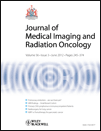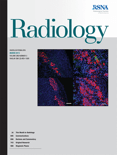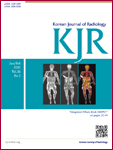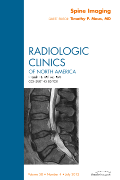
SA Journal of Radiology
Scope & Guideline
Unlocking Insights: Your Gateway to Radiology Excellence
Introduction
Aims and Scopes
- Clinical Radiology Research:
The journal publishes studies that explore clinical applications of imaging modalities, enhancing diagnostic accuracy and patient management in various conditions. - Interventional Radiology:
Research focusing on minimally invasive techniques and their outcomes, highlighting the role of radiology in therapeutic interventions. - Pediatric Radiology:
A dedicated focus on imaging challenges and advancements in pediatric populations, addressing unique conditions and their management. - Oncology Imaging:
In-depth studies on imaging modalities for cancer diagnosis, treatment planning, and follow-up, including the role of imaging in monitoring therapeutic responses. - Emerging Technologies and Methodologies:
The journal emphasizes innovative imaging techniques, including advanced MRI methods, dual-energy CT, and artificial intelligence applications in radiology. - Radiological Education and Workforce Development:
Articles addressing the training, perceptions, and experiences of radiology professionals, contributing to the enhancement of radiology education and practice.
Trending and Emerging
- Artificial Intelligence and Radiology:
An increasing number of publications are exploring the integration of AI in radiology, focusing on its potential to enhance diagnostic accuracy and workflow efficiency. - Advanced Imaging Techniques:
There is a growing emphasis on advanced imaging modalities, such as high-field MRI and dual-energy CT, as researchers investigate their applications and benefits in clinical practice. - Multidisciplinary Approaches:
Recent trends show a rise in studies that involve collaboration with other medical disciplines, highlighting the importance of integrated care in patient management. - Patient Safety and Quality Improvement:
Research focusing on radiation safety, diagnostic reference levels, and quality assurance measures in imaging practices is increasingly prevalent, emphasizing the commitment to patient safety. - Imaging in Emerging Infectious Diseases:
The journal has seen a surge in studies related to imaging findings in emerging infectious diseases, particularly in the context of the COVID-19 pandemic, underlining the relevance of radiology in public health.
Declining or Waning
- Traditional Radiological Techniques:
There has been a noticeable decrease in studies focusing solely on conventional imaging methods such as plain X-rays, as newer modalities and technologies gain prominence. - Basic Radiological Anatomy Studies:
Research centered on fundamental anatomical studies in radiology is less frequent, possibly due to the integration of more advanced imaging techniques that provide comprehensive anatomical details. - General Case Reports:
The journal has shifted towards more specialized case reports with significant findings, leading to a decline in the publication of general case reports that do not provide new insights or advancements. - Historical Perspectives in Radiology:
There is a diminishing trend in articles that discuss historical aspects of radiology, as the focus shifts towards contemporary issues and future advancements.
Similar Journals

Indian Journal of Radiology and Imaging
Empowering Knowledge Through Open Access Radiology ResearchThe Indian Journal of Radiology and Imaging, published by THIEME MEDICAL PUBL INC, is a prominent open-access journal in the field of radiology, nuclear medicine, and imaging. Since its inception in 1984, the journal has provided a platform for researchers, professionals, and students to disseminate innovative research and findings in diagnostic imaging. With a growing impact factor and categorized in the Q3 quartile according to the 2023 rankings, it ranks among the notable journals in its field, although it currently stands at Rank #244 out of 333 within Scopus, reflecting its competitive position in radiology research. The journal, accessible to a global audience since 1999, aims to advance the knowledge and practice in imaging by inviting diverse contributions, including original research articles, reviews, and case reports. Its commitment to open-access publication fosters wider dissemination and collaborative discourse, crucial for the dynamic landscape of medical imaging.

Journal of Medical Imaging and Radiation Oncology
Transforming Oncology Through Cutting-Edge Imaging ResearchJournal of Medical Imaging and Radiation Oncology, published by WILEY, is a pivotal resource in the fields of oncology and medical imaging. With an impact factor reflective of its commitment to advancing research, the journal has maintained a robust reputation since its inception in 2008 and continues to thrive through 2024. It is indexed with an insightful ranking, with a Q2 classification in Radiology, Nuclear Medicine and Imaging, affirming its importance in these disciplines. This journal not only serves as an open access platform, allowing extensive reach and accessibility, but also fosters a scholarly community dedicated to the innovation of imaging techniques and radiation oncology practices. As a key player in disseminating crucial findings and advancements, it appeals to researchers, clinicians, and students who aim to contribute to the evolving landscape of medical imaging and cancer treatment methodologies. The journal is based in Australia, at 111 River St, Hoboken, NJ, and invites submissions that push the boundaries of current knowledge in this critical area of healthcare.

RADIOLOGY
Unveiling the science behind state-of-the-art imaging.RADIOLOGY, published by the Radiological Society of North America (RSNA), stands as a premier journal in the fields of radiology, nuclear medicine, and imaging. Established in 1945, this esteemed journal has consistently provided groundbreaking research and insights, helping to shape advancements in diagnostic imaging and therapeutic interventions. With a commendable Q1 ranking in its category and a remarkable 99th percentile ranking in Scopus, RADIOLOGY continues to be a pivotal resource for clinicians, researchers, and students alike. Although not an Open Access journal, it offers a wealth of high-quality peer-reviewed articles that contribute significantly to the ongoing discourse in the medical community. With a strong focus on innovative techniques and the integration of new technologies, RADIOLOGY remains essential for professionals aiming to stay at the forefront of medical imaging practices.

European Radiology Experimental
Fostering Global Collaboration in Radiology InnovationEuropean Radiology Experimental is a premier open-access journal published by Springer Wien, dedicated to advancing the field of radiology through innovative research and experimentation. Since its establishment in 2017, the journal has quickly gained recognition, evidenced by its impressive Q1 ranking in the Radiology, Nuclear Medicine and Imaging category, and its placement within the top 83rd percentile of the Scopus rankings. Based in the United Kingdom, this journal aims to bridge the gap between clinical practice and cutting-edge research, providing a platform for rigorous peer-reviewed articles that explore new methodologies, technologies, and insights in radiological sciences. With a commitment to open access, European Radiology Experimental ensures that its content is readily accessible to a global audience, supporting the dissemination of knowledge and fostering collaborations among researchers, professionals, and students in the medical imaging community. As it progresses through its convergence years, the journal continues to play a vital role in shaping the future of radiological research and practice.

Japanese Journal of Radiology
Advancing the Frontiers of Medical ImagingThe Japanese Journal of Radiology, published by SPRINGER, serves as a premier platform for disseminating cutting-edge research and clinical advancements in the fields of radiology, nuclear medicine, and imaging. With an ISSN of 1867-1071 and E-ISSN 1867-108X, this journal has established itself as a vital resource for practitioners, researchers, and students alike. Renowned for its high-quality peer-reviewed articles, it currently enjoys a respectable impact factor within the Q2 category of Scopus rankings, placing it in the 69th percentile among 333 journals in its field. The journal has seen consistent convergence of research from 2009 to 2024, further underscoring its commitment to advancing the understanding of radiological practices. Importantly, the journal offers Open Access options to facilitate widespread dissemination of knowledge, ensuring that vital research reaches its audience without barriers. Addressed in Japan, the Japanese Journal of Radiology plays a critical role in enhancing the global discourse on medical imaging, making it an essential resource for anyone engaged in this dynamic field.

KOREAN JOURNAL OF RADIOLOGY
Transforming Radiological Practices Through ResearchKorean Journal of Radiology (ISSN: 1229-6929, E-ISSN: 2005-8330), published by the Korean Society of Radiology, stands as a leading international platform for the dissemination of high-quality research and advancements in the fields of radiology, nuclear medicine, and imaging. With a remarkable impact factor and ranked in the Q1 quadrant in its category, this journal showcases cutting-edge studies, clinical investigations, and comprehensive reviews that significantly contribute to the understanding and practice of medical imaging. Researchers, clinicians, and students alike will find the journal an invaluable resource, featuring innovative methodologies, case studies, and essential updates in imaging technology. Since its inception in 2000 and continuing through 2024, the Korean Journal of Radiology remains dedicated to promoting excellence and fostering collaborative research within the global radiology community, underscoring the importance of imaging in modern medicine.

Imaging
Elevating Standards in Imaging ResearchImaging, published by AKADEMIAI KIADO ZRT, is an esteemed open-access journal dedicated to the field of medical imaging, established in 2020. With an E-ISSN of 2732-0960 and based in Budapest, Hungary, this journal provides a vital platform for the dissemination of cutting-edge research and advancements in imaging techniques, especially in the realms of radiology, nuclear medicine, and ultrasound technology. While currently positioned in the Q4 category across multiple medical specialties, the journal continues to strive for improvements in visibility and impact, contributing to the evolving discourse in medical imaging. The journal aims to facilitate an inclusive and collaborative environment for researchers, professionals, and students, inviting them to share their findings and insights to enhance the field's development. With open-access availability since its inception, Imaging ensures free and easy access to its content, fostering a greater understanding and appreciation of innovative imaging practices worldwide.

Egyptian Journal of Radiology and Nuclear Medicine
Bridging Research and Practice in RadiologyThe Egyptian Journal of Radiology and Nuclear Medicine, published by Springer, is a premier open access journal that has provided valuable insights and advancements in the fields of radiology and nuclear medicine since its initiation in 2010. With an E-ISSN of 2090-4762, this journal is dedicated to bridging the gap between research and clinical practice, allowing for the dissemination of high-quality research to a global audience. Situated in Germany, it enjoys a robust reputation in the academic community, evidenced by its categorization in the Q3 quartile for 2023, as well as its Scopus ranking, where it holds a position of #225 out of 333 in the domain of Radiology, Nuclear Medicine and Imaging, placing it in the 32nd percentile. The journal's open access model ensures that researchers, professionals, and students can freely access innovative studies, reviews, and case reports that discuss the latest methodologies, technological advancements, and clinical outcomes in radiology and nuclear medicine. As it looks toward its converged years spanning from 2010 to 2024, the Egyptian Journal of Radiology and Nuclear Medicine continues to be an essential resource for advancing knowledge and fostering ongoing collaboration in these critical fields.

RADIOLOGIC CLINICS OF NORTH AMERICA
Transforming Medical Imaging with Cutting-Edge Research.Radiologic Clinics of North America, published by W B Saunders Co-Elsevier Inc, stands as a pivotal resource in the field of medical imaging and radiology. With a solid history dating back to 1963 and converging years extending to 2024, this journal has established itself as a reputable platform for original research, comprehensive reviews, and insightful discussions that advance the knowledge and practice of radiology, nuclear medicine, and imaging. Holding a Q2 classification in both the miscellaneous medicine and radiology categories and positioned within the 56th percentile among its peers, its contributions are vital for both academic research and clinical applications. Although it does not offer open access, the journal remains accessible through institutional subscriptions and is a must-read for researchers, healthcare professionals, and students keen on the latest developments in radiological practices. With a dedicated editorial board and a commitment to the highest academic standards, Radiologic Clinics of North America continues to shape the future of the medical imaging field.

Radiological Physics and Technology
Exploring the intersection of medicine and physics.Radiological Physics and Technology, published by SPRINGER JAPAN KK, is a prominent journal that serves as a crucial resource in the multidisciplinary fields of medicine and radiation sciences. With an ISSN of 1865-0333 and an E-ISSN of 1865-0341, the journal has been converging impactful research from 2008 to 2024. It holds a commendable position in academic rankings, currently classified in Q2 in Physical Therapy, Sports Therapy and Rehabilitation and Radiation, along with Q3 for Medicine (miscellaneous) and Radiology, Nuclear Medicine and Imaging. The journal is well-regarded in the academic community, reflected in its Scopus rankings that place it in the upper tiers of its respective categories. Although it currently does not offer Open Access, Radiological Physics and Technology remains a pivotal publication for researchers, academics, and practitioners seeking to advance knowledge and foster innovation in radiological science. Its commitment to disseminating high-quality research ensures its continued relevance and importance within these fields.